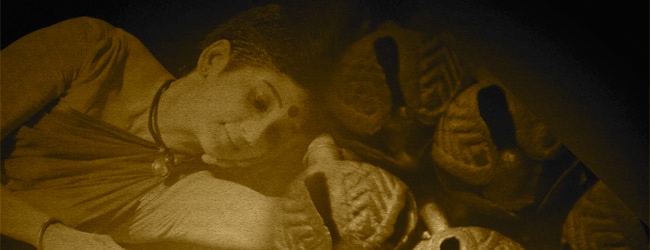The Namboodiri men:
PAPTIKUTTY’S FATHER: Thazath Moose, an ordinary Namboodiri, fond of his daughter but not able to give the support that she needed.
CHEMATIRI OTIKKAN: Paptikutty’s teacher. Wise, learned and compassionate Brahmin of a high rank, who after performing several yagas (sacrifices), has earned the title “Otikkan” (teacher of the Vedas).
AKKITHAR: Chematiri’s father, a saintly Namboodiri who spent his time in prayer and meditation and is prophetic in his vision.
YOUNG OTIKKAN: Son of Chematiri, non-conformist infused with revolutionary zeal. Paptikutty’s classmate and friend.
PACHU OTIKKAN: Chematiri’s brother and the first victim of Paptikutty.
YOUNG NAMBOODIRI: A young Namboodiri, conscious of the ills that beset his community. A reformer and activist.
THAZHAMANGALAM ACHAN NAMBOODIRI: Head of a powerful Namboodiri household. Materialistic, shrewd, cunning, domineering, hedonistic and fascist by nature. He indulged in physical pleasures and ruthlessly terminated anyone who crossed swords with him.
NAMBYATTAN: Achan’s younger brother who had to remain unmarried because of a prevailing custom among Namboodiris. Led a life of leisure and carnal pleasure till a woman, Mathukutty, entered his life and changed it completely.
TUNDAN: Infamous, ugly, deformed brother-in-law of Paptikutty who raped her.
NEELAN: Paptikutty’s husband.
The representatives of other castes:
KING: Ruler of a native state, Cochin, in Kerala
KESAVAN: A slavish, subservient Nair assistant, sycophant of Achan Namboodiri.
CHAMI: The lower caste disciple of Chematiri.
The women in the play are:
PAPTIKUTTY: the protagonist
MOTHER OF THAZHAMANGALAM: Mother of Achan Namboodiri and Nambyattan. Widow, matriarch.
ITTINGAYYA: First wife of Achan Namboodiri. Becomes mad after Achan rapes and murders a poor relative, Unnikali.
UNNIKALI: Child widow, poor Namboodiri relative appointed to look after the needs of Mother of Thazhamangalam. Raped and killed by Achan.
MATHUKUTTY: Nair woman, high class prostitute who falls in love with Nambyattan and remains devoted to him.
RAMAN’S NIECE: Lower class woman, seduced and made pregnant by Nambyattan and ultimately killed by him.










